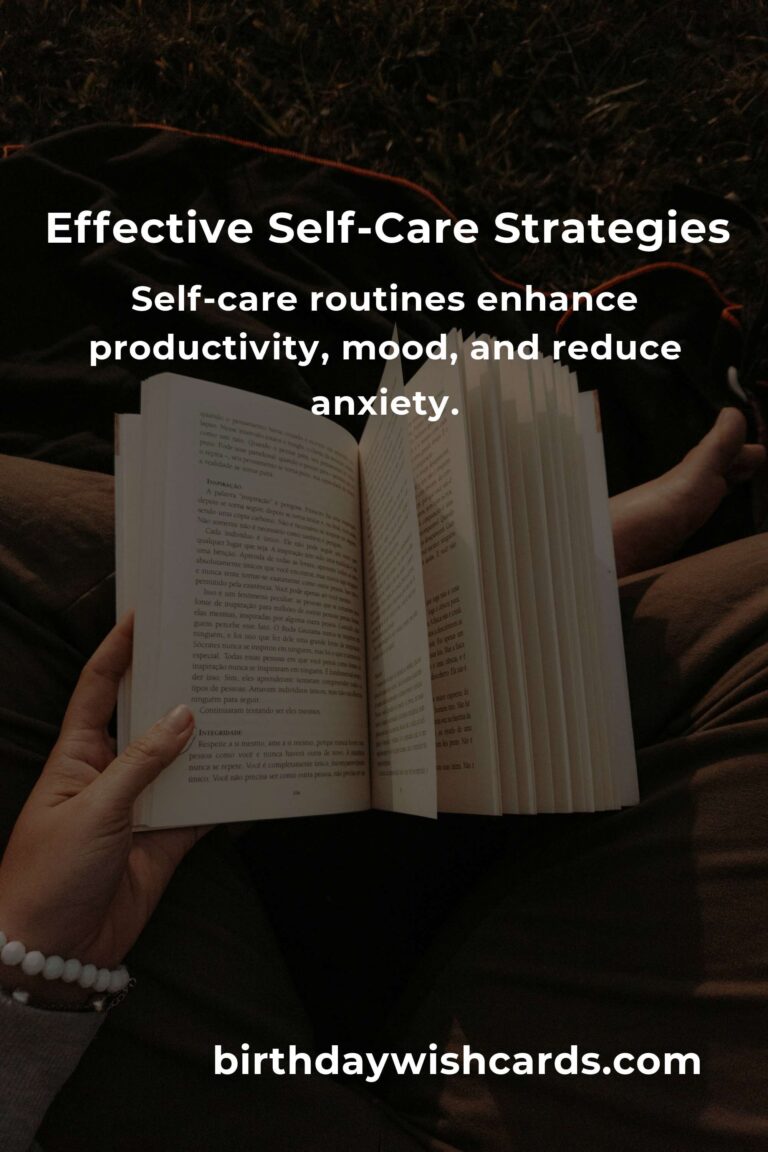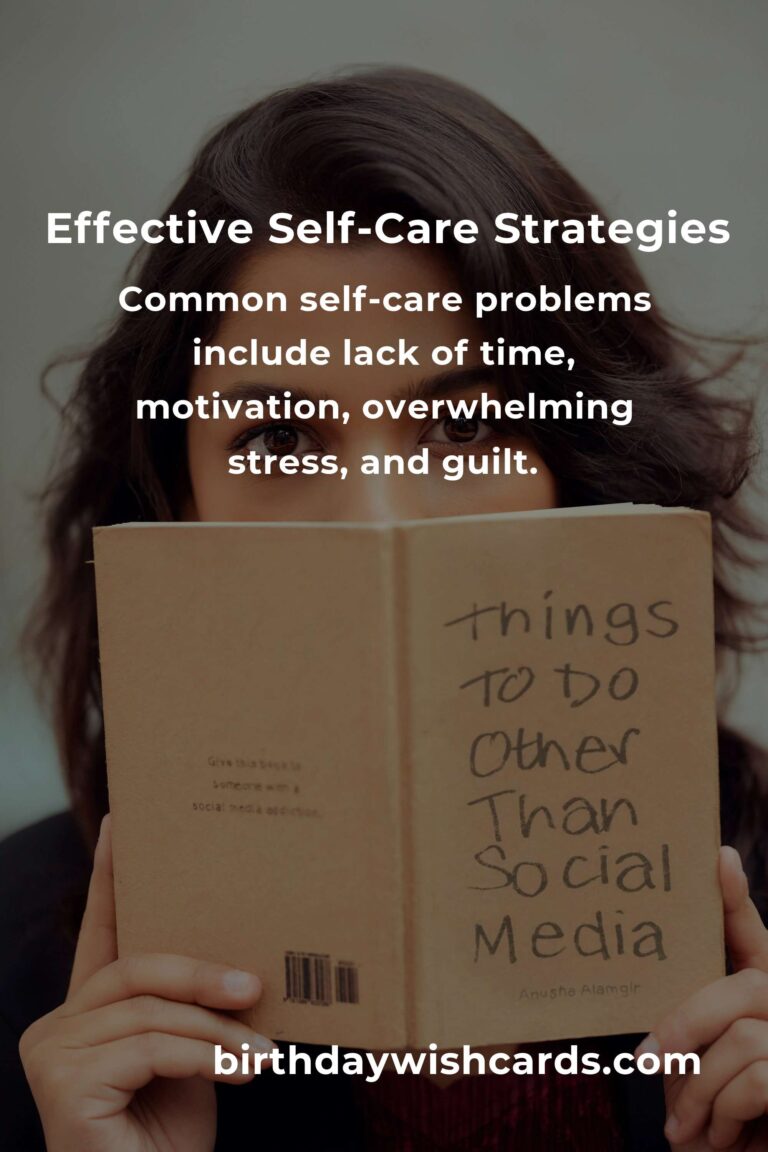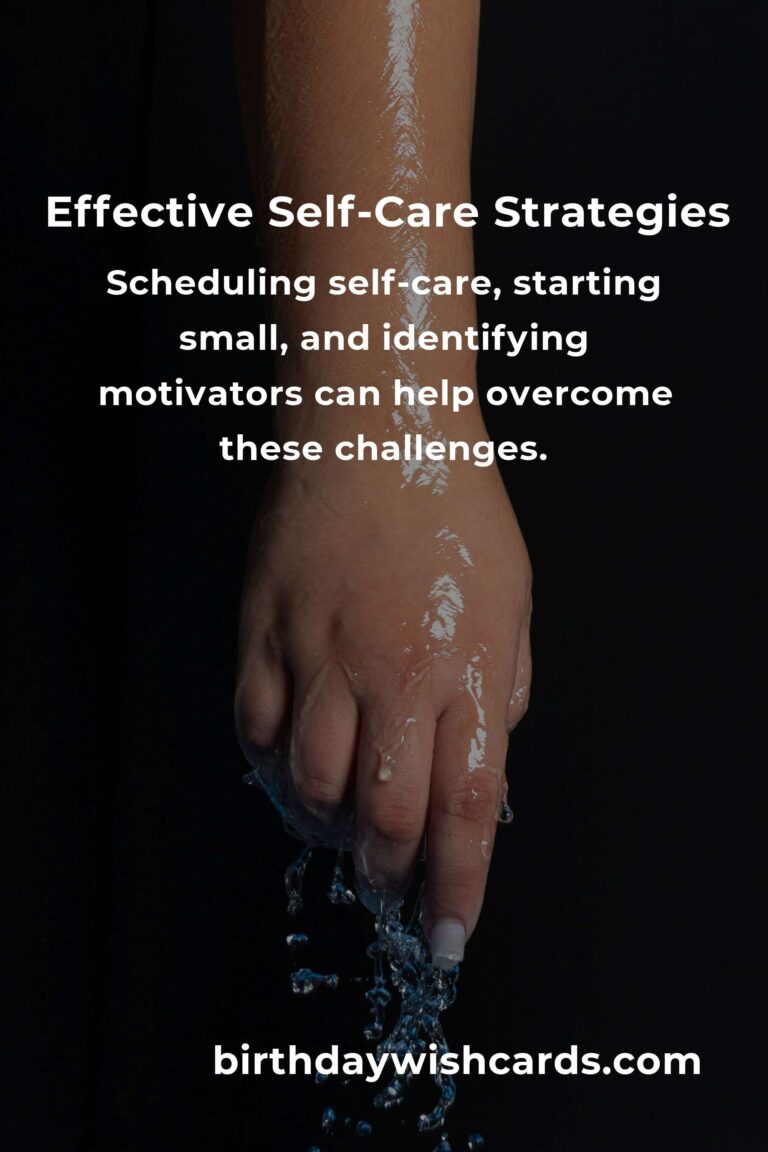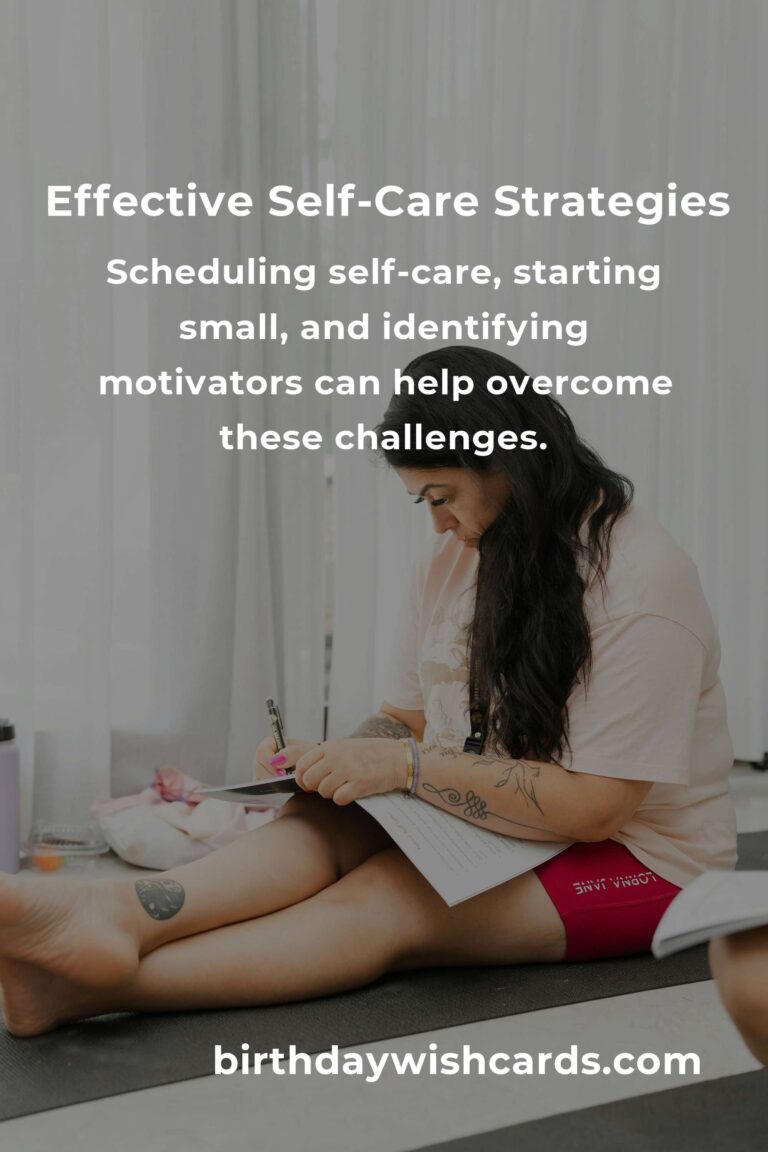
Self-care is an essential aspect of maintaining physical, mental, and emotional well-being. However, many people encounter challenges when trying to establish or maintain self-care routines. In this article, we will explore effective strategies to overcome common problems associated with self-care routines.
Understanding the Importance of Self-Care
Before delving into the common problems and their solutions, it’s essential to understand why self-care is crucial. Self-care involves activities that help manage stress, enhance health, and improve quality of life. It empowers individuals to take charge of their health, leading to better productivity, enhanced mood, and reduced anxiety.
Common Problems in Self-Care Routines
Despite the benefits, self-care often falls by the wayside due to various challenges. Here are some common issues:
1. Lack of Time
Many people claim they do not have enough time for self-care due to their busy schedules. This can lead to neglecting both physical and mental health needs.
2. Lack of Motivation
Self-care requires motivation, which can wane due to stress or exhaustion. When motivation is low, self-care activities can become neglected.
3. Overwhelm and Stress
High levels of stress and being overwhelmed can make it difficult to prioritize self-care, even though it’s when it’s most needed.
4. Guilt
Some individuals feel guilty for taking time for themselves, especially if they have responsibilities towards family or work.
Strategies for Overcoming Self-Care Challenges
1. Scheduling Self-Care
One effective way to ensure you dedicate time to self-care is by scheduling it. Treat self-care like a meeting or appointment that cannot be missed. Use planners or digital calendars to block out specific times for your self-care activities.
2. Start Small
Begin with small, manageable self-care activities that do not require a lot of time or effort. This could be as simple as taking five minutes to meditate or going for a short walk.
3. Identify Your Motivators
Understand what motivates you and incorporate these elements into your self-care routine. Whether it’s music, nature, or social interaction, use these as tools to increase motivation.
4. Practice Self-Compassion
Release the guilt associated with self-care by practicing self-compassion. Remind yourself that taking care of yourself is not selfish, but necessary for your well-being.
5. Tailor Your Self-Care to Your Needs
Self-care is not one-size-fits-all. Customize your routine to meet your individual preferences and needs. If you dislike a certain activity, don’t force it. Instead, find alternatives that you enjoy.
Conclusion
Self-care is a vital component of a healthy lifestyle that should not be overlooked. By understanding common obstacles and employing effective strategies, you can overcome these challenges and establish a routine that enhances your overall well-being. Remember, self-care is about consistency and finding what works best for you.
Self-care is essential for maintaining physical, mental, and emotional well-being. Common self-care problems include lack of time, motivation, overwhelming stress, and guilt. Scheduling self-care, starting small, and identifying motivators can help overcome these challenges. Practicing self-compassion and tailoring self-care to individual needs are crucial for success. Self-care routines enhance productivity, mood, and reduce anxiety.
#SelfCare #WellBeing #MentalHealth #StressManagement #HealthyLifestyle













